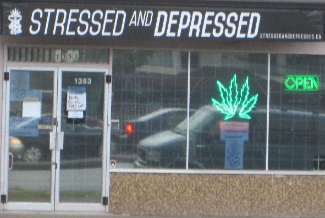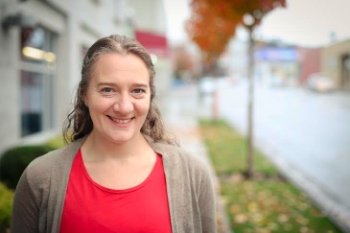 A few weeks ago, I got a call from a friend at 4 am. Actually, it was a call from an acquaintance, but now I consider him a friend. He had not been able to sleep and was feeling overwhelmingly anxious.
A few weeks ago, I got a call from a friend at 4 am. Actually, it was a call from an acquaintance, but now I consider him a friend. He had not been able to sleep and was feeling overwhelmingly anxious.
As we spoke, he articulated, with some difficulty, that the last few weeks had been tough. He was discouraged with his work, grieving over a lost relationship and, I think, feeling the weight of a heavy blanket of shame for not being able to cope.
He had not been eating well, doing much physical activity, sleeping at regular times, making space for creative projects, taking a sabbath or connecting with friends. He was feeling far from God and unable to pray, and this also confused and distressed him. Not to mention, every negative feeling is amplified in the middle of the night.
As we talked, my friend, still struggling to get the words out, also told me he had been using marijuana. He had gone to one of the new medical marijuana dispensaries in Vancouver, connected with an off-site doctor using an iPad, explained that he was experiencing anxiety and having trouble focusing and was given a prescription.
 He had been consuming marijuana cookies and brownies fairly regularly for a month. These medical dispensaries, popping up all over Vancouver, are operating in a grey zone, as the various levels of government sort out who can produce marijuana. The police and city officials seem to be turning a blind eye for now. [On the day this story was being posted, articles appeared about the city cracking down on marijuana dispensaries; time will tell whether that will happen.]
He had been consuming marijuana cookies and brownies fairly regularly for a month. These medical dispensaries, popping up all over Vancouver, are operating in a grey zone, as the various levels of government sort out who can produce marijuana. The police and city officials seem to be turning a blind eye for now. [On the day this story was being posted, articles appeared about the city cracking down on marijuana dispensaries; time will tell whether that will happen.]
Was his use of marijuana right or wrong? At 4 am, that was not a relevant question. What mattered is that he was reaching out to someone. We talked, prayed about it and then both got a little sleep.
When I checked in several days later, my friend was doing better. He had bought some groceries and was eating more. He had gone for several bike rides, and life was getting back to a good rhythm. He had even taken his camera out and got some good pictures of Vancouver’s spring flowers.
Then, five days after our initial conversation, my friend called again, around 8 am. I had a cup of coffee in my hand, was just starting to read the newspaper and was much more alert. He had had another rough night – insomnia, heart racing, nausea, paranoia.
 I was about to take him to the ER, when he told me he had not consumed any marijuana since our last conversation. We spent the next hour looking online at marijuana withdrawal symptoms. My friend was experiencing most of them, right on schedule.
I was about to take him to the ER, when he told me he had not consumed any marijuana since our last conversation. We spent the next hour looking online at marijuana withdrawal symptoms. My friend was experiencing most of them, right on schedule.
I can only imagine how hard it was for my friend to call me that night. And yet having caring people to journey with is vitally important. What can we do to equip ourselves to be a support when others are struggling?
• Make it acceptable to talk about hard times. People need, more than anything, to connect with a compassionate individual when life is falling apart.
• Be intentional about self care – whether personally experiencing a mental health crisis or walking alongside a friend with one, we need to take care of ourselves physically, so we are able to offer other kinds of support. Last week, I went over to my friend’s place and we made a big pot of curry together – enough for dinner for both of us for a few days.
• Become informed about mental health and substance use. The Mental Health First Aid course is a good step. Mind Check, though geared at youth, is also helpful.
 Karen Giesbrecht is a registered dietitian with CityGate Leadership Forum, one of the founding partners of Planted, which is helping to cultivate collaboration toward a sustainable and equitable local food system in Metro Vancouver. Within this broader food security network, CityGate nurtures a community of practice for faith-based programs offering a deeper hospitality that moves beyond traditional charity. She takes great delight in sharing good meals with her family, friends and those in her community who are hungry.
Karen Giesbrecht is a registered dietitian with CityGate Leadership Forum, one of the founding partners of Planted, which is helping to cultivate collaboration toward a sustainable and equitable local food system in Metro Vancouver. Within this broader food security network, CityGate nurtures a community of practice for faith-based programs offering a deeper hospitality that moves beyond traditional charity. She takes great delight in sharing good meals with her family, friends and those in her community who are hungry.
